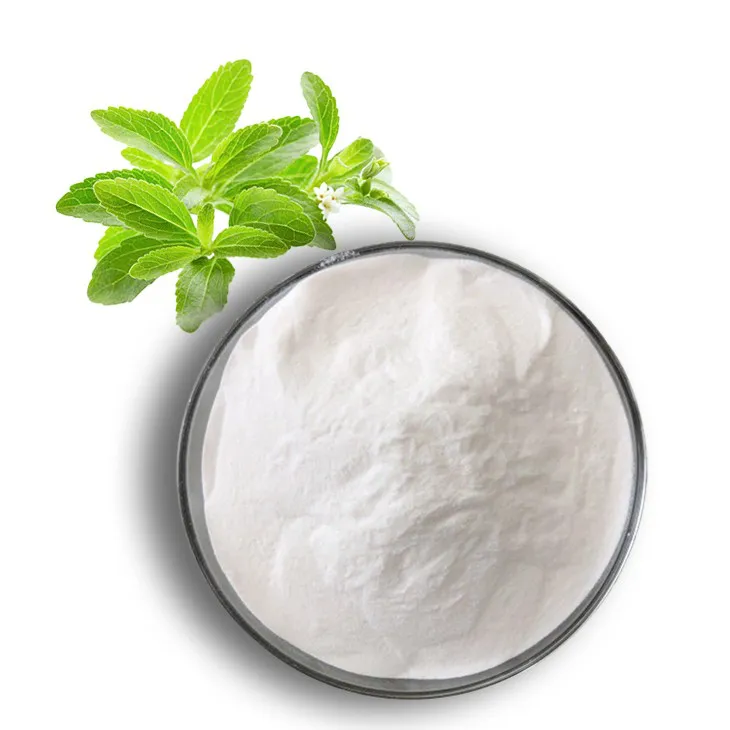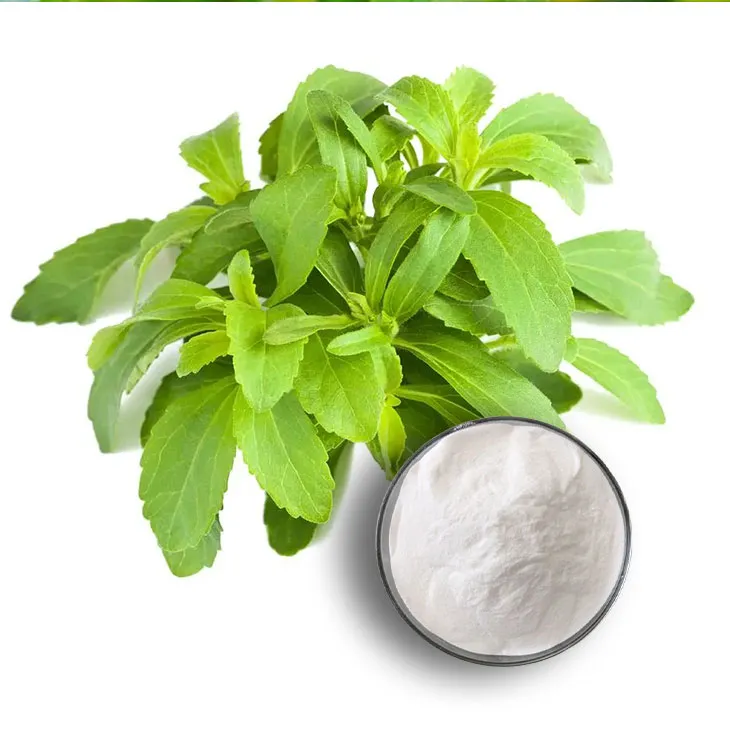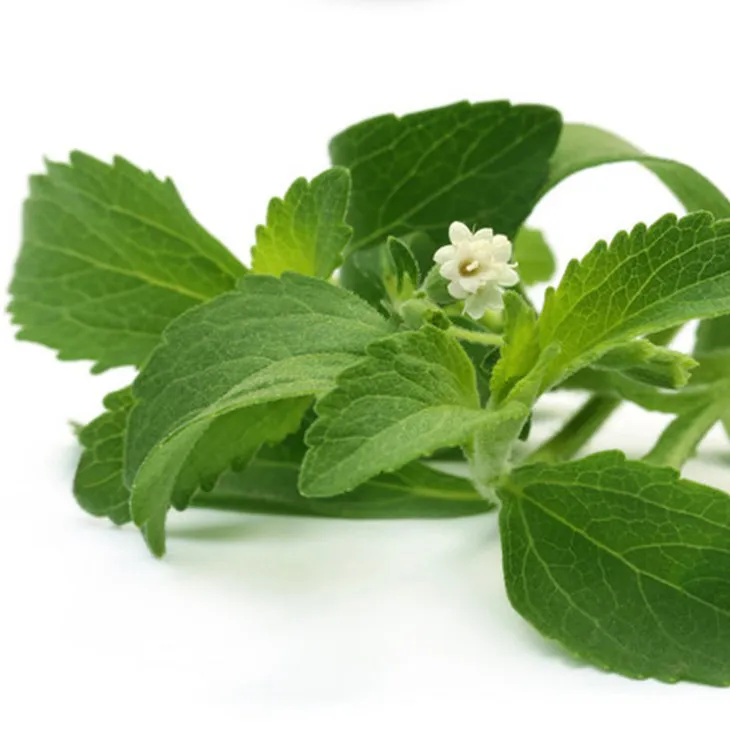- 0086-571-85302990
- sales@greenskybio.com
Is stevia extract beneficial for diabetes? Are these all safe and applicable for diabetic patients?
2024-11-12

1. Introduction
Diabetes is a chronic metabolic disorder that affects millions of people worldwide. Management of blood glucose levels is crucial for diabetic patients. In recent years, Stevia Extract has gained popularity as a natural sweetener. This article aims to explore whether Stevia Extract is beneficial for diabetes and its safety for diabetic patients.

2. What is Stevia Extract?
Stevia extract is derived from the leaves of the Stevia rebaudiana plant. It contains natural sweet - tasting compounds called steviol glycosides. These glycosides are much sweeter than sucrose (table sugar), but with significantly fewer calories.

3. Potential Benefits for Diabetes
3.1. Blood Glucose Regulation
Studies have suggested that stevia extract may have a positive impact on blood glucose regulation. It appears to stimulate insulin secretion in pancreatic beta - cells. Insulin is the hormone responsible for transporting glucose from the bloodstream into cells, where it can be used for energy. By enhancing insulin secretion, stevia extract may help to lower blood glucose levels in diabetic patients.
3.2. Glycemic Index
Stevia extract has a very low glycemic index (GI). The glycemic index is a measure of how quickly a carbohydrate - containing food raises blood glucose levels. Foods with a low GI are digested and absorbed more slowly, resulting in a more gradual increase in blood glucose. Since stevia extract has a low GI, it is less likely to cause spikes in blood glucose levels, which is beneficial for diabetic patients who need to keep their blood glucose stable.
3.3. Weight Management
Many diabetic patients also struggle with weight management. Stevia extract can be a useful tool in this regard. Because it is a low - calorie sweetener, it can be used to replace high - calorie sweeteners such as sucrose and fructose. By reducing calorie intake, it may contribute to weight loss or weight maintenance, which in turn can have a positive impact on diabetes management. For example, excess body weight is associated with insulin resistance, and losing weight can improve insulin sensitivity.

4. Safety for Diabetic Patients
4.1. General Safety
Overall, stevia extract is considered safe for diabetic patients when consumed in moderation. The United States Food and Drug Administration (FDA) has approved stevia extract as a general - purpose sweetener. However, like any substance, some individuals may experience side effects. These side effects are generally mild and may include gastrointestinal symptoms such as nausea, bloating, or diarrhea in a small number of people.
4.2. Interaction with Medications
One important consideration for diabetic patients is the potential interaction between stevia extract and diabetes medications. While there is currently no evidence to suggest that stevia extract interferes with the action of common diabetes medications such as metformin or insulin, it is still advisable for patients to consult their healthcare providers before using stevia extract, especially if they are taking multiple medications. This is because some medications may interact with stevia extract in unexpected ways, and healthcare providers can provide personalized advice based on a patient's specific medical history and current treatment plan.
4.3. Allergic Reactions
Although rare, allergic reactions to stevia extract can occur. Symptoms of an allergic reaction may include skin rashes, itching, swelling, or difficulty breathing. Diabetic patients who have a history of allergies should be particularly cautious when using stevia extract. If any signs of an allergic reaction occur, they should discontinue use immediately and seek medical attention.

5. How to Incorporate Stevia Extract into a Diabetic Diet
5.1. Beverages
Stevia extract can be used to sweeten a variety of beverages. For example, it can be added to coffee, tea, or water to provide a sweet taste without adding a significant amount of calories. Diabetic patients can enjoy these sweetened beverages as part of their daily fluid intake, helping to keep them hydrated while also satisfying their sweet tooth.
5.2. Baking and Cooking
When it comes to baking and cooking, stevia extract can be used as a substitute for sugar. However, it is important to note that stevia extract is much sweeter than sugar, so the amount used needs to be adjusted accordingly. There are also some stevia - based sweeteners available on the market that are formulated specifically for baking and cooking, which may be more convenient to use.
5.3. Reading Labels
When purchasing products sweetened with stevia extract, it is essential for diabetic patients to read the labels carefully. Some products may contain other ingredients that are not suitable for a diabetic diet, such as high - fructose corn syrup or excessive amounts of carbohydrates. By reading labels, patients can make informed decisions about which products are safe and healthy to consume.
6. Conclusion
In conclusion, stevia extract shows potential benefits for diabetes, including blood glucose regulation, having a low glycemic index, and aiding in weight management. It is generally safe for diabetic patients when consumed in moderation, but individual differences in tolerance and potential interactions with medications should be considered. Diabetic patients can incorporate stevia extract into their diet in a variety of ways, such as in beverages, baking, and cooking, while being vigilant about reading labels to ensure the overall healthiness of the products they consume. Overall, stevia extract can be a useful addition to the diet of diabetic patients, but it should be used as part of a comprehensive diabetes management plan under the guidance of a healthcare provider.
FAQ:
Q1: What is stevia extract?
Stevia extract is a natural sweetener derived from the leaves of the stevia plant. It contains compounds called steviol glycosides, which are much sweeter than sugar but have very few calories.
Q2: How can stevia extract potentially benefit diabetes?
Stevia extract may be beneficial for diabetes in several ways. Firstly, it can be used as a sugar substitute, which helps in reducing the overall calorie and carbohydrate intake. Since controlling blood sugar levels is crucial in diabetes management, lower carbohydrate consumption can lead to better glycemic control. Secondly, some studies suggest that stevia may have a positive impact on insulin sensitivity, potentially helping the body to use insulin more effectively.
Q3: Is stevia extract safe for diabetic patients?
Generally, stevia extract is considered safe for diabetic patients. It has been approved as a food additive in many countries. However, like any substance, some individuals may have rare allergic reactions. Also, it's important to note that stevia products should be used in moderation as part of a balanced diet. Overconsumption of highly processed stevia - containing products may have other implications on health, but in normal use, it is a safe alternative to sugar for diabetics.
Q4: Can stevia extract replace all forms of sugar in a diabetic diet?
While stevia extract can be a great substitute for sugar in many aspects, it may not completely replace all forms of sugar in a diabetic diet. Some recipes may require the functional properties of sugar, such as in baking for texture and browning. Also, natural sugars from fruits and some complex carbohydrates are still an important part of a balanced diet for diabetics. Stevia can be used to sweeten beverages, cereals, and some cooked dishes, but a comprehensive diet plan should also include a variety of nutrient - rich foods.
Q5: Are there any side effects of stevia extract for diabetic patients?
For most diabetic patients, stevia extract has no significant side effects. However, in some cases, if consumed in large amounts, it may cause mild gastrointestinal discomfort like bloating or diarrhea. Also, as mentioned before, there is a small risk of allergic reactions in a very few individuals. But compared to the potential negative impacts of high - sugar consumption on diabetics, these side effects are relatively minor and rare.
Related literature
- The Role of Stevia in Diabetes Management"
- "Stevia Extract: Safety and Efficacy in Diabetic Populations"
- "Beneficial Effects of Stevia on Blood Glucose Regulation in Diabetes"
- ▶ Hesperidin
- ▶ Citrus Bioflavonoids
- ▶ Plant Extract
- ▶ lycopene
- ▶ Diosmin
- ▶ Grape seed extract
- ▶ Sea buckthorn Juice Powder
- ▶ Fruit Juice Powder
- ▶ Hops Extract
- ▶ Artichoke Extract
- ▶ Mushroom extract
- ▶ Astaxanthin
- ▶ Green Tea Extract
- ▶ Curcumin
- ▶ Horse Chestnut Extract
- ▶ Other Product
- ▶ Boswellia Serrata Extract
- ▶ Resveratrol
- ▶ Marigold Extract
- ▶ Grape Leaf Extract
- ▶ New Product
- ▶ Aminolevulinic acid
- ▶ Cranberry Extract
- ▶ Red Yeast Rice
- ▶ Red Wine Extract
-
Lotus leaf extract
2024-11-12
-
Bayberry Extract
2024-11-12
-
Kupilu Extract
2024-11-12
-
Pueraria Lobata Extract
2024-11-12
-
Konjac Powder
2024-11-12
-
Ivy Extract
2024-11-12
-
Shikone Extract
2024-11-12
-
White Willow Bark Extract
2024-11-12
-
Okra Extract
2024-11-12
-
Longan Extract
2024-11-12





















